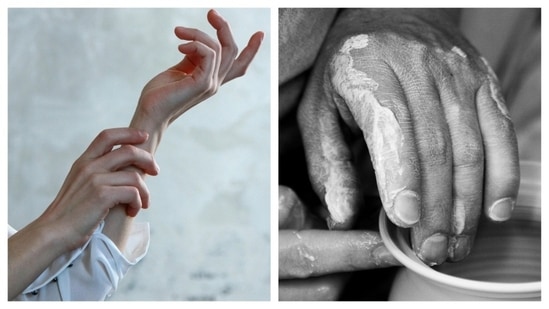
Another reason to ditch waxing? New research finds that body hair protects your touch sensitivity
8 months ago | 97 Views
Body hair has a bad rep in society, fueled by the billion-dollar beauty industry. This pressure builds self-consciousness of nitpicking over the innocent hair, followed by rigorous waxing or shaving. It compels us to achieve that smooth look. However, it’s actually a misunderstood hero. A new study published in Frontiers in Aging Neuroscience found that touch sensitivity declines with age only in hairless skin. Hairy skin preserves touch sensitivity even in old age.
Hair safeguards touch sensitivity
Touch is an essential sense for humans, as they are social creatures. The language of touch is critical for both verbal and non-verbal communication. The sense of touch builds and strengthens relationships, conveying empathy, emotion, and affection. Physical contact like hugging or holding hands releases the ‘bonding hormone’ called oxytocin. This brain hormone makes you feel ‘emotionally-full’ with joy when you hug and reduces anxiety. Touch-starved people experience physical illness. The sense of touch becomes all the more important to feel fulfilled and joyful in life.
The researchers experimented and found that older women’s hairless skin areas like the index finger exhibited low touch sensitivity, while the forearms and cheeks had their touch responsiveness intact. The finding was unexpected for them as hairless skin contains mechanoreceptors, specialized neurons that detect pressure and touch. Yet, hairy skin in the research participants was more touch-receptive. Hair plays a crucial role in acting as an antenna to sense and interpret the external stimuli in contact with the skin. With time, bodily senses like auditory, visual, and gustatory, weaken. But, the touch sensitivity almost nearly stays the same in hairy skin.
Other ways to maintain touch sensitivity
There are other ways to maintain touch sensitivity as well. To maintain touch sensitivity, the researchers recommended minimizing alcohol intake, avoiding smoking, and protecting skin from excessive sun exposure and air pollution are essential to prevent damage that could impair sensitivity.
Read Also: is it only for the rich and famous? 7 plastic surgery myths debunked





















